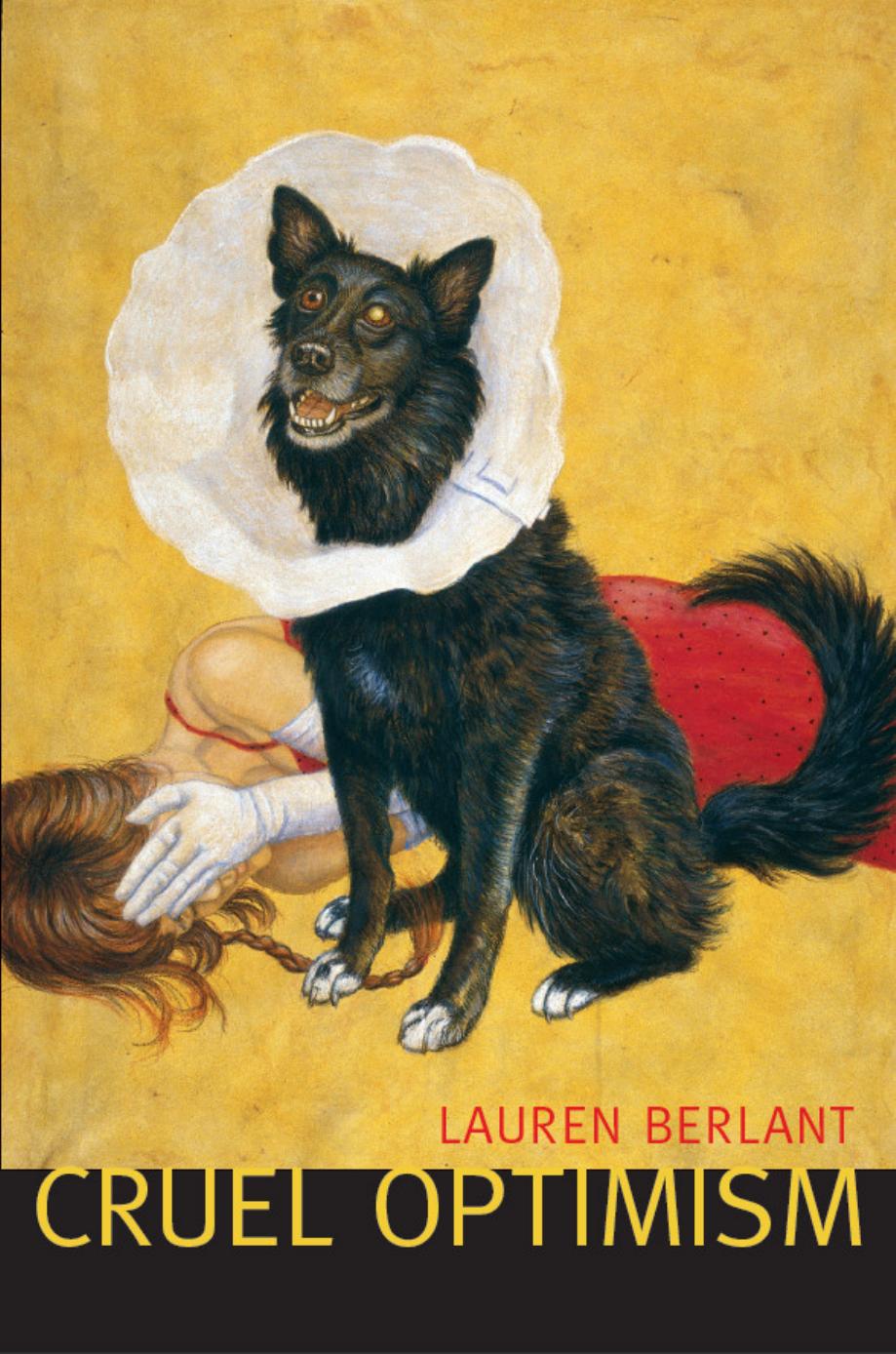Cruel Optimism by Lauren Berlant

Author:Lauren Berlant
Language: eng
Format: epub, pdf
Tags: ebook
Publisher: Duke University Press
Published: 2012-06-20T16:00:00+00:00
6. Igor plays with whiteness
A nearly comic, silent movie–style example from La Promesse plays out this activity beautifully, pointing additionally to what’s singular about globalization’s sensual flesh. It is Igor’s job to white out the immigrant passports, making their bearers seem already legal. Yet when he arrives at Assita’s papers and sees the contrast of her dark skin and her white teeth, Igor immediately moves to a mirror and whites out his own teeth, erasing workingclass staining and emphasizing his racial whiteness as an homage to her smile and also to her blotted-out identity. It is also clear that he doesn’t get it: his racial location, his privilege of citizenship, his dependency on her familial labor. Nothing happens from this moment of play, whose gestures are ordinary, forgettable, forgotten. In fact, in these films play itself is a momentary privilege crowded out constantly by risk, which is play with life-denting consequences. Both play and risk are shaped by the pressures of contemporary labor, with its demands for survival and incitement to fantasy without a scaffold, a net, or a retreat. Play allows a sense of normalcy, though, while risk tries to make some headway in the impasse: play is the performance of an interruption without risk. Yet it takes place as barely enjoyed comic relief from the risk that must be borne.
Thus, how to talk about the need to maintain binding to the normal in the context of crisis is a theoretical and political problem of more than consciousness. The Dardennes represent consciousness under present systemic economic, political, and intimate conditions as absorbed in regimes of bargaining with movement amid the slow train wreck that is always coming in the catastrophic time of capitalism, where if you’re lucky you get to be exploited, and if you’re lucky you can avoid one more day being the focus of a scene that hails and ejects you when it is your time to again become worthless. This is why exploitation is not what the children cast as the enemy. They want to be exploited, to enter the proletarian economy in the crummy service-sector jobs it is all too easy to disdain as the proof of someone’s loserdom or tragedy. The risk would be opting out of the game. One does not necessarily require families or nations to secure this feeling; any reciprocal form will do—friendship, collegiality, a project, the state, a union, whatever has the capacity to deliver an affective, transpersonal sense of unconflictedness, belonging, and worth.
The history of sentimentality around children that sees them as the reason to have optimism—for if nothing else, their lives are not already ruined— thus takes on an ethical, political, and aesthetic purchase in these films. The audience is obligated to side with the child’s will not to be defeated, even if the difference between defeat and all its others is the capacity to attach optimism for a less bad future to a blighted field of possibility. We are incited to have compassion for fruitless and even self-undermining—cruel—desires.
Download
This site does not store any files on its server. We only index and link to content provided by other sites. Please contact the content providers to delete copyright contents if any and email us, we'll remove relevant links or contents immediately.
| Books & Reading | Comparative Literature |
| Criticism & Theory | Genres & Styles |
| Movements & Periods | Reference |
| Regional & Cultural | Women Authors |
4 3 2 1: A Novel by Paul Auster(12354)
The handmaid's tale by Margaret Atwood(7729)
Giovanni's Room by James Baldwin(7301)
Asking the Right Questions: A Guide to Critical Thinking by M. Neil Browne & Stuart M. Keeley(5741)
Big Magic: Creative Living Beyond Fear by Elizabeth Gilbert(5726)
Ego Is the Enemy by Ryan Holiday(5392)
The Body: A Guide for Occupants by Bill Bryson(5065)
On Writing A Memoir of the Craft by Stephen King(4920)
Ken Follett - World without end by Ken Follett(4705)
Adulting by Kelly Williams Brown(4552)
Bluets by Maggie Nelson(4534)
Eat That Frog! by Brian Tracy(4499)
Guilty Pleasures by Laurell K Hamilton(4422)
The Poetry of Pablo Neruda by Pablo Neruda(4079)
Alive: The Story of the Andes Survivors by Piers Paul Read(4009)
White Noise - A Novel by Don DeLillo(3990)
Fingerprints of the Gods by Graham Hancock(3979)
The Book of Joy by Dalai Lama(3960)
The Bookshop by Penelope Fitzgerald(3827)
